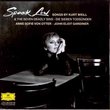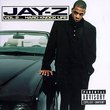| All Artists: Muslimgauze Title: Zul'm Members Wishing: 3 Total Copies: 0 Label: Extreme Music Release Date: 7/4/1995 Genres: Dance & Electronic, International Music, Special Interest, Pop, Rock Styles: IDM, Techno, Experimental Music Number of Discs: 1 SwapaCD Credits: 1 UPC: 723248603924 |
Search - Muslimgauze :: Zul'm
 | Muslimgauze Zul'm Genres: Dance & Electronic, International Music, Special Interest, Pop, Rock
|
CD DetailsSimilar CDsSimilarly Requested CDs
|
CD Reviews"To have been in a place is not important." Angry Mofo | 05/04/2004 (4 out of 5 stars) "In the city of Manchester, over in merry old England, there once lived a man named Bryn Jones. A drummer by profession, he made a living as a session musician until the Israeli invasion of Lebanon in 1982. Jones had no connection to the Middle East, and no stake in the conflict, yet for some inexplicable reason, this war struck him deeply. Filled with intense sympathy for the people of Lebanon and for Arabs in general, Jones formed the one-man band known as Muslimgauze in protest. His first album, released in 1983, was titled "Kabul," alluding to the war raging in Soviet-besieged Afghanistan. Thus began a career that lasts to this day, having outlived Jones himself.Sympathy for the Arabs was behind everything Muslimgauze released. Unfortunately, Jones was not a very effective spokesman for his cause: in the few interviews he gave, he spoke in short, agitated pronouncements that lacked the gift of eloquence and occasionally contradicted each other. When reading these documents, one might envision a man driven by some insuppressible sense of responsibility but insufficiently articulate to describe it to others. The one consistent theme of Jones's rhetoric was unconditional support for Arabs (Palestinians, in particular), and one could always see his anger rising as he proclaimed it. That could lead him to make very unsavoury statements - for instance, when confronted with the fact of Palestinian terrorism once, he bluntly said, "Muslimgauze will never condemn." On another occasion, however, he fervently wished for peace in the Middle East, and said that such a thing could happen only if all sides could just sit down and talk to each other. Such apparent self-contradiction was part of the man's character, and doubtless he often did his cause more harm than good.Jones's defiance permeated even his very method of recording music. He eschewed all digital media and claimed to never have touched a computer or sampler in his life, believing that these things would make his music sound too much like "everyone else's." Instead, he worked solely with old analogue equipment. He likewise dictated his own terms in the matter of releasing records, which he made at a superhuman pace - to give some idea of his dedication, the Muslimgauze discography is over 150 titles strong as of this writing. Recording and releasing albums was the sole outlet for Jones's anger, as can be seen from their titles, which read like political leaflets or calls to arms, e.g. Vote Hezbollah, Betrayal, Coup D'Etat, and so forth. Despite such deliberately provocative gestures, and sometimes disturbing packaging (one Muslimgauze album cover depicts two Arab women, completely covered with black veils, coldly drawing and aiming pistols), they are all entirely instrumental. Jones deliberately wrote no lyrics, believing that "that would be preaching" and hoping that listeners would be sufficiently intrigued by the music to learn about the issues that motivated it. Ultimately, it's this music, born of Jones's political views yet detached from them, that distinguishes Muslimgauze and redeems whatever faults possessed by its creator.Jones was recording electronica a decade before the term existed. Since he was a drummer by trade, all of his albums have a strong focus on percussion. On Muslimgauze albums, drums are often the lead instruments. The solos, the rhythm section, the atmospherics all rely on percussion. Other instruments are used for texture and melody, but the drums are always prominent. One might think that this would make for clanging noise of the sort that can be found on many "jungle" records, but the best Muslimgauze albums are nothing like that. Consider this album, released in 1992. The track "Indian Summer of Benazir Bhutto" starts out with a brief meandering part on hand drums, as a distant, low bass rumble appears in the background, more of an echo than a bass line. A steady, highly danceable beat comes in. The echo rises in pitch somewhat until it takes on a sonorous, mournful sound. But the main beat isn't played the way dance or rock beats are; instead of pounding, it's cushioned in many layers of subdued cymbals, and sounds gentle and airy. Add to this a few chimes and hand drums playing little solos off to the side, and you have a track which by all rights should have been the great dance hit of its day, and certainly outclasses many actual dance hits. Despite Jones's uncompromising attitudes, his music was often perfectly accessible."Curfew, Gaza" uses a similar technique, burying the beat even further into the cymbals and high-hats and setting it to a faraway flute melody, thus creating a sense of apprehension and slumbering danger. "Fakir," on the other hand, plays up the drums, and uses a cheerful guitar line and Arabic calls to create an image of some sort of bustling Eastern marketplace. Though devoid of lyrics, Muslimgauze tracks make extensive use of vocals, and often contain whole conversations held in Arabic or some other Eastern language, muedzins calling Muslims to prayer, wailing women, arguing men, and so forth, to make the music more evocative. In "Teheran Via Train," for instance, the plaintive, quiet singing of an old man fades in and out of focus throughout the track. Along with a hazy violin, and drifting hand-drum percussion, without the steady, prominent back-beat of other tracks, this creates a more reflective, solitary mood, as when a languid summertime dusk slowly falls outside one's window. The album as a whole tends toward this kind of rumination, and political aggression is nowhere to be found in the music. These are elegant, haunting tracks with more depth than the simplicity of Jones's approach might suggest.Bryn Jones, electronica's fieriest and most enigmatic figure despite his obscurity, died in 1999 of a rare blood disease. Thanks to his prolificity, Muslimgauze has outlived him: there is so much unreleased material remaining in his vaults that his label is still releasing new Muslimgauze albums, at nearly the same rate as when Jones was alive."
|

 Track Listings (7) - Disc #1
Track Listings (7) - Disc #1



